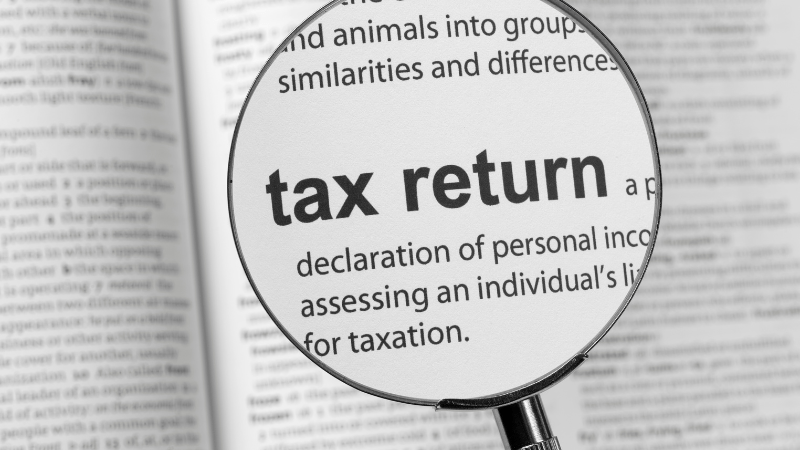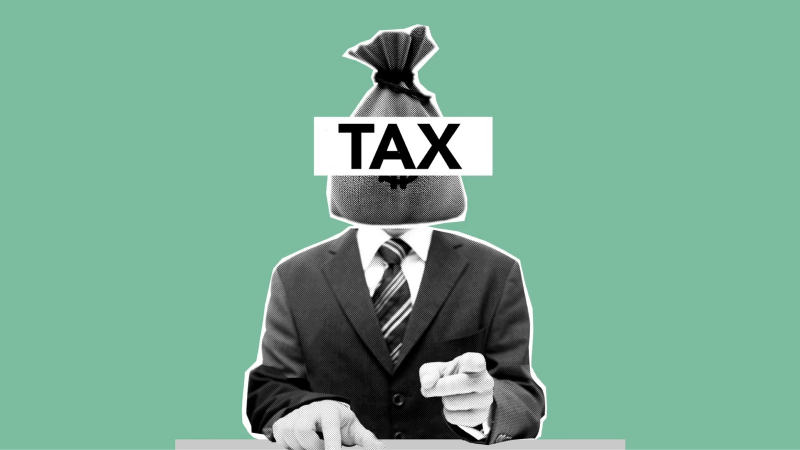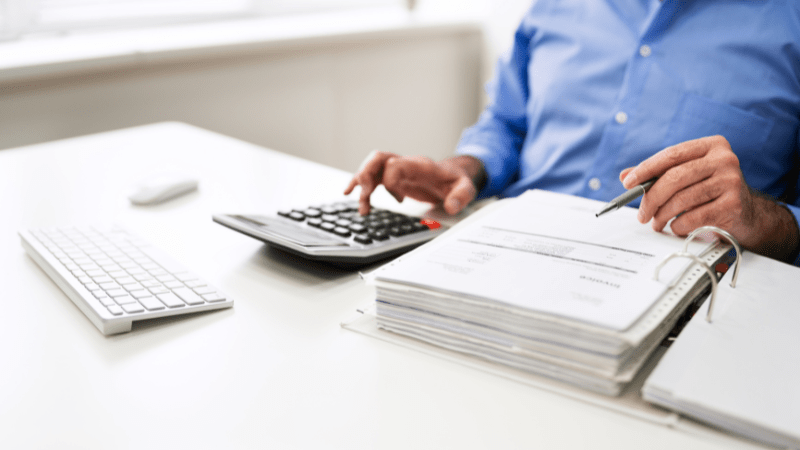Categories
How to Work Out Corporation Tax - Step by Step

Stepping into the world of business and becoming a company director is exciting but it can also be nerve-wracking, especially when the idea of corporation tax rears its head.

What is Corporation Tax?
UK corporation tax is paid by every limited company registered in the country. It’s a tax on company profits that’s paid to HMRC every year and represents the main tax companies pay to the government.
Corporation tax must be calculated and paid to HMRC prior to filing the company tax return, so it is important that it is worked out early enough each year to make sure all the details are correct.
Sole-Traders vs. Limited Companies
As corporation tax is only paid by limited companies, sole-traders and partnerships are exempt. Tax for sole-traders is paid as income tax on all income, which has both benefits and disadvantages. Often, sole-traders move to becoming limited companies to take advantage of preferable corporation tax rates.
It is worth calculating potential corporation tax and speaking to your accountant if you are considering the move from sole-trader to limited company.

Calculating Corporation Tax
The Basics
In essence, corporation tax is actually deceptively simple. It is a tax that is charged on the profits the company makes.
Thus, for a company with £40,000 in annual profits, corporation tax (at the 19% small profit rate) would be payable of £7,600.
For a company posting £840,000 in profits for the year, corporation tax (at the standard rate of 25%) will be £210,000.
Calculating Profit
Calculating profit can also be complicated, but in essence, it is your company’s income minus its overheads - this is also called operating profit or earnings before interest and tax (EBIT).
Related: To understand more about calculating profit, it’s worth looking to our comprehensive article on the subject - How to Calculate Business Profit
Business Expenses - Understanding Overheads
Your overheads are the total monies spent running the business. When calculating your corporation tax, it is essential that you account for your overheads in full, as they can have a considerable impact on the final figure.
Allowable deductions and business expenses are those which have been incurred wholly for business use and must not include any personal expenses. They can include:
- Employee salaries
- Marketing costs
- Utilities
- Third-party service fees (such as accountancy or consultancy)
- Office supplies
- Software
- Insurance
- Employee business travel expenses
However, they cannot include:
- Expenses for entertaining clients
- Travel expenses for personal travel (including commuting to work)
- Services not for the business (such as using the company cleaning service at home)
Marginal Tax Relief
Companies that have profits between £50,000 and £250,000 may be able to claim some tax relief as marginal relief. This is to smooth the jump in corporation tax from the small profit rate to the standard rate.

Capital Expenditure and Depreciation
An important additional factor is that of capital assets and depreciation.
Capital expenditure is money spent on fixed assets that will form part of the business assets for several years. This includes:
Fixed assets will depreciate over time, and this depreciation must be accounted for.
In order to facilitate the depreciation calculation, capital expenditure on fixed assets is allowable on their initial purchase, with the depreciation being offset against profits in future years.
This is best shown in an example as follows:

How to Work Out Corporation Tax - Examples
Example 1 - Company AAA
- AAA has a total income for the year of £1,400,000.
- Overheads and business expenses for AAA total £950,000.
- AAA purchased some machinery as a capital asset valued at £180,000 at 100% capital allowance. This machinery has a useable lifespan of six years, and depreciation for it is therefore £30,000 per year. AAA also owns other fixed assets that have been owned for sometime; depreciation on these comes to a further £20,000, making a total depreciation calculation of £50,000.
AAA profit is calculated as:
|
Item |
Value |
|
Income |
£1,400,000 |
|
Overheads and Expenses |
(£950,000) |
|
Capital Allowances |
(£180,000) |
|
Depreciation |
£50,000 |
|
TOTAL LIABLE PROFIT |
£280,000 |
AAA pays the standard rate of corporation tax at 25% and must pay £70,000 to HMRC.
Example 2 - Company BBB
- BBB is a small company with a total income in the year of £87,000.
- Overheads and business expenses were originally calculated to be £24,800; however, some of this was entertaining clients and had to be removed from the calculation. The final total for allowable deductions is £19,700.
- BBB bought a new laptop for £2,000 that is expected to serve for four years. Depreciation is calculated at £500.
BBB profit:
|
Item |
Value |
|
Income |
£127,000 |
|
Overheads and Expenses |
(£59,700) |
|
Capital Allowances |
(£2,000) |
|
Depreciation |
£500 |
|
TOTAL LIABLE PROFIT |
£65,800 |
BBB sits in the bracket for marginal relief, which is provided as £2,763. Before relief, the corporation tax at the standard rate is £16,450, however the marginal relief brings this down to £13,687, an effective tax rate of 20.80%.

Paying Corporation Tax
Companies with taxable profits of up to £1.5 million must pay their corporation tax within nine months of the start of the accounting period. Those companies with greater than £1.5 million in taxable profits pay in regular automatic instalments.
If you pay your corporation tax early, then HMRC will pay you interest at 0.5%; however, it’s worth noting that this interest itself is taxable on future corporation tax payments.
If you pay your corporation tax late, you will be subject to fees and additional interest. This starts at a £100 as soon as you are a day late, with a second £100 fine after three months. From six months, HMRC will estimate your corporation tax bill and apply a 10% surcharge for late payment.
It is always advised that you pay your corporation tax bill on time.

Corporation Tax Loans and Other Financial Assistance
As one of the financial products designed to help businesses in the UK, many lenders offer dedicated corporation tax loans designed to help spread the cost of your corporation tax and lower the burden on your capital.
In most cases, these corporation tax loans take the form of a short-term unsecured business loan that is designed for repayment within 12 months.
Corporation Tax Help From Clifton Private Finance
Our team of expert brokers at Clifton Private Finance are here to help you deal with your corporation tax bill. To access a wide range of financial products and get the experienced support you need, contact us today.
Call us today on 0117 332 5640 to see how we can help, or book a consultation with us below.









